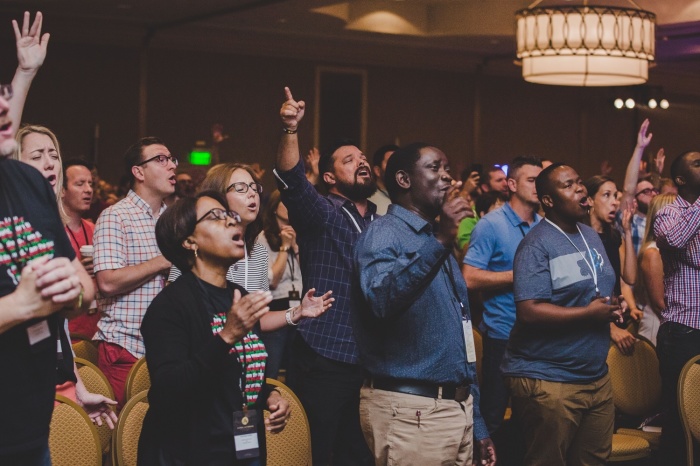Christian conservatives are as empathetic as liberals, analysis finds

New analysis of research is challenging common stereotypes about politically conservative religious people, who, though thought to be religious and "cold-blooded," report being as empathetic as political "bleeding-heart" liberals when surveyed.
According to a study examining data from the General Social Survey — a National Science Foundation-funded sociological survey created and collected since 1972 out of the University of Chicago — political conservatives who are highly religious are as likely as political liberals to report similar levels of empathy, such as "having tender feelings of concern for others or being greatly disturbed by the others misfortunes of others," noted David Briggs, writing Tuesday in the Association of Religion Data Archives.
Obscured by a vitriolic political climate today, the actual attitudes of religious conservatives are much more complicated, he said, as evangelicals are a diverse group of people.
“Our study finds some common ground among liberals and conservatives, at least when it comes to the sense of empathic concern for others,” said sociologist Scott Schieman of the University of Toronto, who led one such study.
In the analysis from the 2004 GSS, researchers studied the relationship between political orientation and empathy, finding that survey respondents who self-identified as conservative scored lower on measures of empathy than those who identified as liberal.
Yet those gaps vanished as conservatives reported higher levels of "belief in a loving, supportive God engaged in their lives, or prayed frequently or were regular worship attenders," Briggs wrote.
Researchers from Texas A&M and the University of Minnesota analyzed data in another study using data from the 2010 Baylor Religion Survey to determine five basic conceptions Americans have of God.
The highest percentage of respondents viewed God as loving, nonjudgmental, and engaged with humanity, followed by those who regarded God as loving but neither judgmental nor engaged with humanity and those who consider God loving, judgmental, and engaged.
Very few of those surveyed said they believed God is punishing and judgmental.
“We find little evidence that respondents perceived God to be only an angry entity,” researchers reported.
“Instead, much of the variation among the three classes that imply a robust God revolves around how God’s tendencies toward judgment and engagement with humanity intersect with love.”
No significant differences existed among Protestants, evangelicals, and Catholics regarding their perception of God as loving.
Such findings dovetail with other research showing the complex relationship between religious faith and political issues.
Researchers found in one study examining attitudes toward racial inequality in the U.S. that “simply identifying as a conservative Protestant was never significant in and of itself and that as a group, religiously involved whites showed significant support for identifying factors such as prejudice and discrimination and lack of social capital as causes of African American disadvantage and supported government solutions to address those issues.
“Are white conservative Protestants distinctive in the way they understand the causes of racial inequality or in the solutions they prefer? Our analysis leads us to propose that this may be the wrong question to ask,” researchers noted.
“Religious identification does not signal a static identity that individuals take on wholesale. Instead, religiosity is incorporated into the lives of individuals whose identities are already raced, classed, and gendered; it is intersectional, and as a result, religiosity has a variety of interpretations and uses in everyday life.”
They concluded: “In the current polarized political landscape, the capacity to see beyond caricatures of ‘the left’ and ‘the right’ is essential for finding some degree of social cohesion and unity,”




























